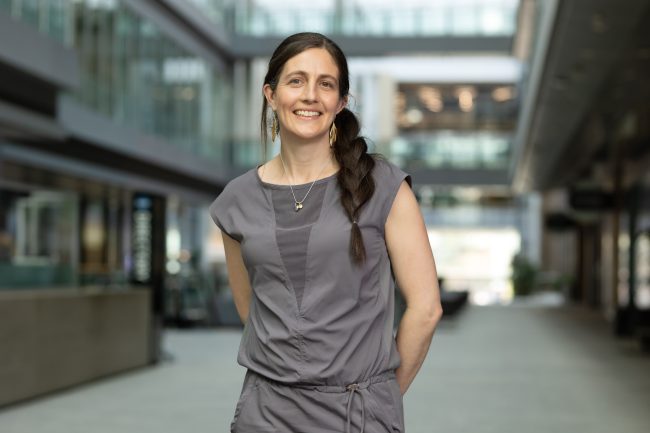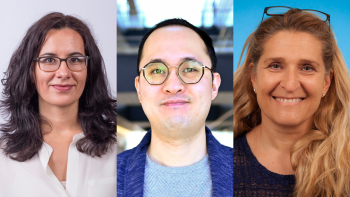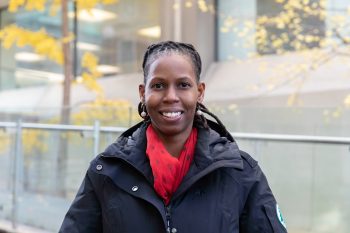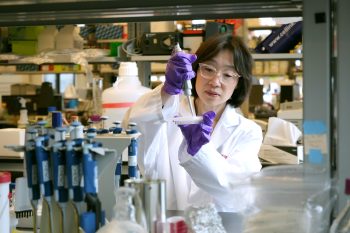New ways of growing human tissues outside the body, developed by Professor Alison McGuigan (ChemE, BME) and her team, will help expand the ability of researchers to understand and control cell behaviour.
The aim of this work is to not only develop new targeted therapies to treat diseases such as cancer, but to also understand the variations between patients in their response to drugs. That approach, known as personalized medicine, could help clinicians tailor their therapies for maximum effectiveness in a given patient.
“We have built many tissue models, but to really start having an impact, we have to scale up these models to generate large amounts of information with variations in the conditions of the tissue,” says McGuigan. “This information is necessary to develop new therapies.”
McGuigan is among three U of T Engineering researchers awarded new Canada Research Chairs (CRCs). The program funded by the Natural Sciences and Engineering Research Council of Canada is designed to recognize and support research excellence across the country.
As the Canada Research Chair in Tissue Engineering and Disease Modelling, McGuigan will advance research into building artificial tumours that incorporate patient immune cells and microbiome material. Studying these lab-grown constructs can enable researchers to understand why some patients respond to medications, while others experience drug resistance.
“The Chair is a recognition of all the hard work of an entire team, which includes students and postdoctoral fellows. I am excited and grateful for the opportunity to have this support to go after high-risk projects with opportunities to make transformative, impactful discoveries.
“It will also allow me to expand my team and continue to bring in trainees with lots of energy and great ideas to tackle these problems.”
McGuigan began her engineering education in material sciences before discovering a passion for living materials and tissue, and the ways researchers can apply engineering tools to build biological systems to design solutions to problems in regenerative medicine.
“The potential for impact on health care and patient outcomes is really motivating,” she says. “We hope that these tools can help accelerate drug discovery and development and enhance access to personalized medicine.”
The other two Canada Research Chairs awarded to U of T Engineering professors in the latest round are:
- Marianne Touchie (CivMin) – Sustainable Urban Housing
- Li Qian (ECE) – Quantum Photonic Technologies



